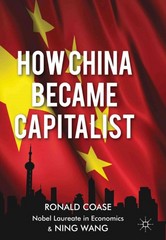Question
Here are some hypothetical numbers used to illustrate the ideas of trade-offs, specialization, and comparative advantage. Assume Sri Lanka, using all her resources efficiently, can
Here are some hypothetical numbers used to illustrate the ideas of trade-offs, specialization, and comparative advantage. Assume Sri Lanka, using all her resources efficiently, can produce either 2,500 bags of rice OR 5,000 bags of tea. Let's also assume that, using all her resources efficiently, Kenya can produce either 2,500 bags of rice OR 2,500 bags of tea. Further, assume that the countries have similar resource endowments and that, initially, they are not trading with each other. Therefore, each of the countries has to produce both rice and tea for its citizens. Suppose that, in the no-trade situation, Sri Lanka was consuming 800 bags of rice and 3,400 bags of tea, and in the no-trade situation, Kenya was consuming 1,250 bags of rice and 1,250 bags of tea.
The trading price is set at one bag of rice for two bags of tea, and Kenya wishes to keep at least 1,000 bags of rice after trade.
For the prompt, Determine if there is any benefit (in terms of increased consumption possibilities) for Sri Lanka and Kenya if they trade with each other.
Step by Step Solution
There are 3 Steps involved in it
Step: 1

Get Instant Access to Expert-Tailored Solutions
See step-by-step solutions with expert insights and AI powered tools for academic success
Step: 2

Step: 3

Ace Your Homework with AI
Get the answers you need in no time with our AI-driven, step-by-step assistance
Get Started


